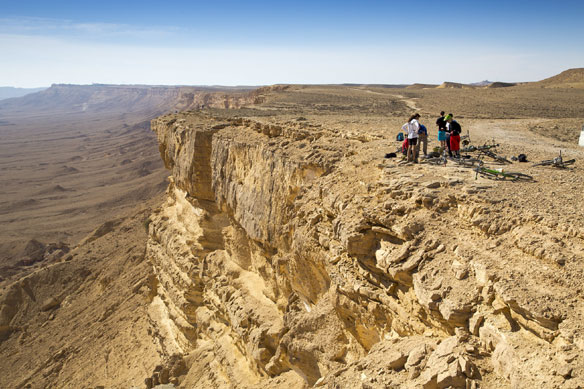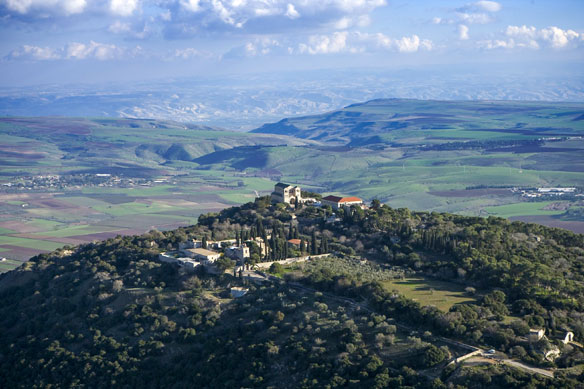
Step by step, Israel prepares to welcome the world

Can you start by talking about the impact of COVID-19 on Israel’s tourism industry: the closing of the country’s borders; the cessation of non-essential travel; the decrease in air service, etc. … Impact on arrivals, on tourism receipts …
The last three years in tourism to Israel were the best in history and we celebrated 2019 with the 4.6 million tourists.
2020 started even better with the strongest January ever, but then COVID19 came and changed the picture for everyone.

Amir Halevi,
Director General,
Israel Ministry of Tourism
Closing the borders was not an easy decision as tourism alone is worth 20 billion NIS to the Israel economy and 150,000 people are working in the industry.
On top of that in the recent years and due to the prosperity of the industry many new entrepreneurs alongside global hospitality chains decided to open accommodation opportunities in Israel and we witnessed an innovative, fresh and diverse tourism ecosystem.
The Israeli government understands the importance of the tourism as an economic growth engine and especially in the periphery where it is so significant working place for so many people.
In the last two months, international travel stopped almost completely, the hotels occupancy rates dropped, but we see the recent positive trends and we hope that soon we will be able to open borders again and welcome, in open arms, the tourists from all over the world.
Our readers are travel agents, and I know they would be interested in Israel’s plans for recovery. How does it plan to open up its tourism industry? Will it start with domestic travel? How long do you think it will be before Israel opens its borders to international travelers?
I am happy to announce that Israel hotels are gradually opening with the ministry of health directives to make sure that every guest is safe.
Just like we addressed the epidemic early and seriously, we are addressing the re-launching of the tourism sector carefully to guarantee utilizing the time and reducing, as much as possible, the recovery time.
We are celebrating the opening of our national parks – once again people can walk in the amazing Caesarea Port, to climb to Masada, hike in Jerusalem mounts, or take a relaxing and faithful walk in Mount Tabor or Gilboa.
Fortunately, in recent years, we focused many resources in the Negev because we identified the wellness and sustainability trends – Six Senses resort, elevating Eilat as a sun escape destination, developing more attractions in the desert like hiking and biking trails, camping sites, promoting events as Yoga Arava.
All those are relevant now more than ever with the need for a more relaxing travel – less crowded places, unique experiences that make Israel one of a kind.
In Hebrew, we have a phrase that means that prophecy had been given to the fools. So, although I don’t know when exactly the international travel will start, I think that we can see the positive trend and if we connect the dots we can be very optimistic.
Has or will the Israel tourism industry need financial assistance from the government? And will it (or has it) receive that assistance?
Israel’s ministry of tourism is working closely with the industry in Israel and via our directors abroad with the international industry as well.
We are formulating a strategic plan that will support the industry and bring it back to the last year’s great figures.
The tangible situation with the political uncertainty, the lack of budget and the COVID19 crisis faced us with a challenge. However, just like we successfully overcame crises before we will overcome this one.
At this moment, we are looking into a support to the industry – Israeli and International, with our directives of marketing agreements, airline incentives and educational activities such as webinars and training sessions that we promoted also in the last two months.
We know that the epidemic changed everything so we are examining the ramifications of insurance, taxation and other topics that we were never dealt with. We understand that we are in different times and we are addressing the solutions in a vast perspective accordingly.
Already, destinations and businesses in the industry are developing and launching ramped up health and hygiene programs to reassure consumers that steps are being taken to protect them as much as possible from COVID-19. Does Israel plan to introduce these kinds of measures?
In Israel, the hotels and hotels association are working on health directive and new standards to make sure of guests’ safety. IMOT, in coordination with the IMOH worked to formulate a certification to present that an hotel or attraction is COVID19 safe.
We are satisfied with the industry response to that and a lot of hotels already implemented the standard. Israel is the start-up nation so we also are working with the tech companies for innovative solutions to manage touristic sites, to maximize the experience without overcrowding, to shift the demands between sites and cities, to manage payments to reduce unnecessary interactions and more.
All the positive perception of Israel in the last months in dealing with the epidemic will be leverage and adopt to make sure people will feel, and will be safe while visiting in the one of the most iconic sites in the world.
Going forward, what do you see tourism looking like in a Post-COVID-19 world? How will it be different? Or will it be different? And where does Israel fit in all this? Is it well-positioned to thrive in this ‘new’ world of travel?
Israel is a one of a kind destination in which you can witnessed the cornerstones of humanity in the morning and waterski in the afternoon. The unique combination of a multicultural destination and the size of Israel, which within a few hours you can go from the green meadows of the Golan Heights to the overwhelming desert landscapes holds an amazing journey.
I believe that the future travel, in the near future, will be FIT’s. These were the last to stop travelling, as they are not in the risk population of the COVID19. They are between the ages of 20 to 40, looking for a great multilayer experience – culture, history and heritage, night life and culinary, and good weather.
On the groups side, we will see a more careful approach of smaller groups with different motivations – one will be the group of the concerns that will want the group as a guarantee for safety, others are faith motivation that will want to strength their beliefs, especially after times like this and other who just want to escape the day to day life to a peaceful place where they will feel safe and relaxed.
All those trends are relevant more than ever to Israel – the FIT’s will find a vibrant hospitality scene with the high-end hotels to Capsule ones, they can hang-out in one of the TLV bars or to go the one of the food markets or a top chef restaurant.
They can walk in the old corridors of Jerusalem, be amazed by the holy sculpture or the Capernaum in sea of Galilee, or enjoy one of the many exhibits in Tel Aviv museum of Arts or Israel museum. Others can choose to go to the Negev or Galilee for a more relaxing time, off the beaten path, to explore themselves in a peaceful and easygoing desert vibe.
This is why Israel is the place to go once things are over – you will have a great and safe experience.
There are always more questions, but I’ll make this my last … in Israel’s recovery plans, where does the Canadian market fit … does it have a role to play in your plans and if it does, what is it?
Canada has a great potential to Israel and this is why we decided to send a consul again after few years.
We recently announced a new and meaningful marketing agreement with TravelBrands, which reflect our confidence in this market.
North America is Israel’s biggest market with over 1 million tourists of which 100,000 originate from Canada – the highest number in history.
With the direct flights of ELAL and Air Canada and the new route from Montreal we are optimistic more than ever. I believe that Gal Hana, our new appointed director to Canada will make this potential come to fruition even with the challenge that we are all facing.

